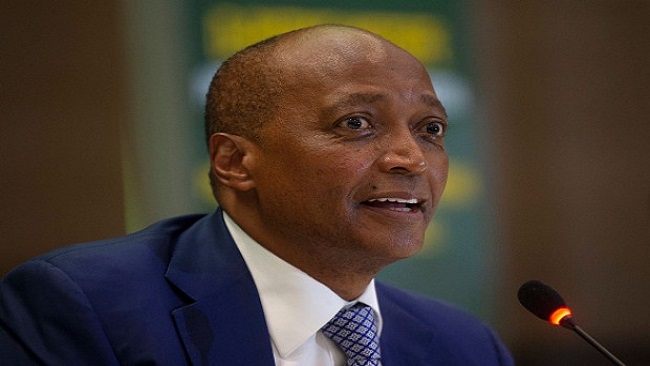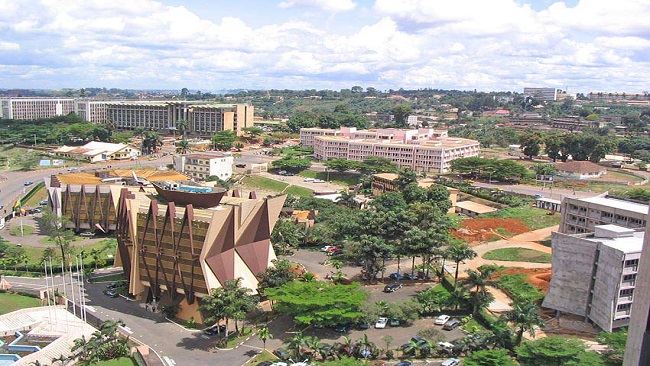6, July 2022
King of Pop: Three disputed Michael Jackson songs pulled from streaming sites 0
Three Michael Jackson songs have been removed from streaming sites following longstanding claims that they are sung by someone else, Sony and the late singer’s estate said Wednesday.
“Breaking News,” “Monster” and “Keep Your Head Up” appear on the 2010 compilation album “Michael,” released a year after Jackson’s death from a drug-induced cardiac arrest.
Some fans have long argued that the vocals on the tracks actually belong to an American session singer by the name of Jason Malachi, claims Sony has denied.
The record company and Jackson’s estate said, however, that they had decided to remove the songs “as the simplest and best way to move beyond the conversation associated with these tracks once and for all.”
They added in their joint statement that the removal had nothing to do with whether the songs were authentic.
“Nothing should be read into this action concerning the authenticity of the tracks — it is just time to move beyond the distraction surrounding them,” they said.
Sony and Jackson’s estate added that the seven other tracks on “Michael” would remain available.
On its release in December 2010, “Michael” was billed as containing unreleased songs that were “recently completed using music from the original vocal tracks and music created by the credited producers.”
Jackson is supposed to have written and recorded them with producers Edward Cascio and James Porte in 2007.
But ardent fans and even some Jackson family members expressed skepticism and Sony was forced to release a statement saying it had “complete confidence” that the vocals belonged to Jackson.
Skeptics said the songs were actually sung by Malachi who, according to TMZ, admitted in a 2011 Facebook post that that was the case.
His manager later denied it, claiming the post was faked, reports said.
In 2014, fan Vera Serova launched a class-action lawsuit in California against Sony, Jackson’s estate, Cascio and Porte accusing them of lying to consumers.
An appeals court ruled in favor of Sony and the estate in 2018, removing them from the suit. Serova then appealed to California’s supreme court, according to TMZ.
The judges did not take a stance on whether Jackson had actually sung the songs, and the controversy has not gone away.
Source: AFP



























7, July 2022
Sustainable Development Goals: How is Africa fairing? 0
Sustainable development is development efforts which aim at meeting today’s needs and those of future generations without damaging the social, economic, cultural, and physical environments. Indeed, sustainable development is holistic development which is fair and inclusive in the short and long term.
There are 17 Sustainable Development Goals (SDGs) goals derived from lessons learned from the performances and failures of MDGs. SDGs, as designed by the United Nations, have been designed to guide global development efforts, including those made on the African continent, when performances, challenges, and outcomes get appraised.
They are great development indicators which should help many countries across the globe to determine if they are making significant development progress. For many decades, Africa has been lagging behind other continents in terms of development and this justifies claims that Africa, the richest continent in terms of natural resources, is indeed the poorest on the face of the earth and these goals may serve as a compass for a continent which has been in the throes of poverty and economic challenges for decades.
Far from being a benchmarking process, sustainable development is a holistic concept designed to address three major growth dimensions namely economic growth, social inclusiveness, and environmental sustainability. These goals include poverty alleviation; zero hunger; ensuring a healthy life and improving the state of well-being; quality education; gender equality and women empowerment, achieve potable water and sanitation, improve modern energy; provision of productive employment, and decent work.
The SDGs also aim at ensuring resilient and sustainable cities; promoting sustainable consumption and production pattern; combating climate change and its impacts; ensuring sustainable use of water bodies; sustainable use of terrestrial eco-system; promoting peaceful and inclusive societies; and promoting global partnership.
While SDGs are commendable as a compass for global development, the time of their introduction has been questionable. They emerged at a period when the global economy and political landscapes were unstable, unlike the MDGs which were introduced when the global economy was comparatively buoyant and more stable. The global economic and financial context of SDGs has been sluggish and challenging just as the political and policy systems of many regions and nations, including African countries. At the time of their introduction, global financial systems, including the private and public sectors, kicked into a dangerously downward spiral or precarious stagnation, leading to sluggish growth in many African countries.
Despite the goodwill demonstrated at the time the SDGs were introduced, studies and experiences suggest that African countries are lagging behind on the road to achieving the 2030 agenda, given that development finance remains a strategic threat and challenge to achieving SDGs in Africa. Development growth and finance are generally slow and inadequate, and these have significantly and adversely impacted the realization of the 2030 agenda, except in cases where funding from usual and unusual quarters are explored and understood.
Despite several development efforts, poverty and poor infrastructure remain the bane of the continent’s development. Africa’s development prospects continue to be bleak, especially in sub-Saharan Africa where corruption and bad governance have become the norm. This has resulted in many Africans becoming increasingly pessimistic about future development due to aggravated reversed development which has played out on the continent after several successive governments.
Africa’s development efforts have been seriously compromised over the last two years following the outbreak of the COVID-19 pandemic. The pandemic hit the global economy like a ton of bricks, hurting some key sectors of the African economy, many of which have already experienced a slow-down as a result. Tourism, air transport, and the oil sector have been visibly impacted and the disruptions are still hurting many people across the globe.
The socio-economic impact of the COVID-19 crisis is real, and it is disrupting global trade, making it hard for the continent to smoothly pursue its journey towards the SDGs. With these disruptions, a paradigm shift is needed if global trade must fully resume to grant the continent the steam it needs to ensure the attainment of the SDGs. However, though devastating, COVID-19 could be an opportunity for the continent.
It never rains but it pours. While Africa is yet to fully recover from the socio-economic repercussions of the COVID-19 pandemic, the Russia-Ukraine conflict has made matters worse for Africa’s development efforts, thereby hampering the continent’s determination to achieve the SDGs.
Within a few weeks, global wheat, sunflower, and crude prices soared to unprecedented levels. Africa is heavily reliant on food imports from both countries, and the continent is already experiencing price shocks and disruptions in the supply chain of these commodities. The conflict has already impacted food security on the continent through availability and pricing in some food crops, particularly wheat and sunflower.
Over the past decade, the continent has seen growing demand for cereal crops, including wheat and sunflower, which has been mainly supported by imports than local production. Africa’s wheat imports increased by 68% between 2007 to 2019, surging to 47 million tonnes.
Russia and Ukraine, often referred to as the world’s breadbaskets, are major players in the export of wheat and sunflower to Africa. North Africa (Algeria, Egypt, Libya, Morocco, and Tunisia), Nigeria in West Africa, Ethiopia and Sudan in East Africa, and South Africa account for 80 per cent of wheat imports. Wheat consumption in Africa is projected to reach 76.5 million tonnes by 2025, of which 48.3 million tonnes or 63.4 % is projected to be imported outside of the continent.
With the disruption of global trade by COVID-19 and the war in Ukraine, it is obvious that Africa will not be reaching the finish line in 2030. Inflation and scarcity have expanded inequalities on the continent and women are among the hardest hit. Diminishing incomes on the continent imply poverty will gain more ground and gender equality and food security will remain slogans for a very long time, making it hard for the continent to fair well with regard to the 2030 Agenda.
By Tabe Joan Manyi in Yaoundé